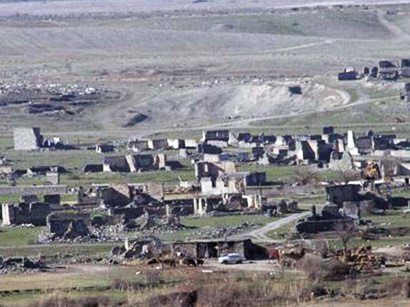Baku, Azerbaijan, Aug. 29
By Leman Zeynalova – Trend:
Armenian Prime Minister Nikol Pashinyan’s recent statement can be interpreted as a way out of the negotiation process to resolve the Armenia-Azerbaijan Nagorno-Karabakh conflict, famous Georgian political analyst Irina Jorbenadze told Azernews, Trend reports.
Armenian Prime Minister Nikol Pashinyan visited the occupied Azerbaijani territories on August 5, 2019, where he attended the "opening ceremony" of “Pan-Armenian Games”. During the "opening ceremony", Pashinyan made a provocative statement, calling Nagorno-Karabakh "an integral part of Armenia".
“The termination of negotiations is a harbinger of a war in which Armenia will certainly lose, if outsiders do not intervene, and Armenia understands this,” Jorbenadze added. "But Armenia is unlikely to be supported by third countries."
“The higher the confrontational degree between the separatist regime in Nagorno-Karabakh and Yerevan is, the less chances Yerevan has to maintain the status quo in the conflict,” she said.
"The final solution to the Nagorno-Karabakh conflict may either happen rapidly or the negotiation process will encouragingly intensify and then will decline again," she said, adding that there can’t be a real forecast for a solution to the conflict now.
Regarding the OSCE Minsk Group, Jorbenadze stressed that this structure has outlived itself and is already playing a decorative role in resolving the Nagorno-Karabakh conflict.
“The OSCE Minsk group has become a platform where they only talk to delay the radical denouement,” she added. “And it could be considered as a positive moment at some time, but not in the medium term. The world politics has mastered the practice of double and triple standards firmly and long ago, and it concerns not only the Nagorno-Karabakh conflict."
The conflict between the two South Caucasus countries began in 1988 when Armenia made territorial claims against Azerbaijan. As a result of the ensuing war, Armenian armed forces occupied 20 percent of Azerbaijan, including the Nagorno-Karabakh region and seven surrounding districts.
The 1994 ceasefire agreement was followed by peace negotiations. Armenia has not yet implemented four UN Security Council resolutions on withdrawal of its armed forces from Nagorno-Karabakh and the surrounding districts.
---
Follow the author on Twitter: @Lyaman_Zeyn






